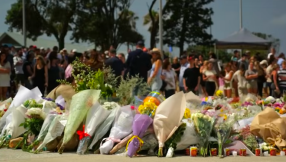EU Demands Immediate Release of Britons
|PIC1|Gathering in Bremen, Germany, EU foreign ministers gave their full support to Britain and expressed that the arrest of the sailors and marines amounted to a breach of international law.
Applying pressure to the Iranian regime, the 27-nation bloc told that it would take "appropriate measures" should the captives not be released soon. Although no firm action was taken by the EU, they would return to the issue if it is not resolved in two weeks time.
EU foreign policy chief Javier Solana has been asked to seek the captives' release from Iranian leaders, making it clear that this was now an EU and no longer a bilateral dispute, Reuters reports.
The EU statement said: "The European Union deplores the continued arrest of 15 British citizens and underlines the EU's unconditional support for the government of the United Kingdom
"The EU repeats its call for the immediate and unconditional release of the British Royal naval personnel.
"All evidence clearly indicates that at the time of the seizure, the British naval personnel were on a routine patrolling mission in Iraqi waters.
"Should the UK citizens not be released in the near future, the EU will decide on appropriate measures," the ministers said.
A demand has also been made for Iran to disclose the whereabouts of the naval personnel and give Britain consular access to them.
Meanwhile, US officials have ruled out any deal to exchange the 15 Royal Navy personnel captured in the Gulf for five Iranians seized by US forces in Iraq.
US State department spokesman Sean McCormack rejected suggestions that a swap could be made.
The crisis has coincided with a UN Security Council resolution at the weekend hitting Iran with sanctions over its nuclear programme. However, Tehran says it is not seeking atomic weapons and also denies US and British accusations that it encourages violence in Iraq.
French European Affairs Minister Catherine Colonna told Reuters: "We must keep contacts (with Iran), we must separate the different issues. This is a question on its own, which raises serious problems of international law."
In an interview with the BBC, Foreign Secretary Margaret Beckett said Iran has given no indication of seeking a resolution to the crisis.













